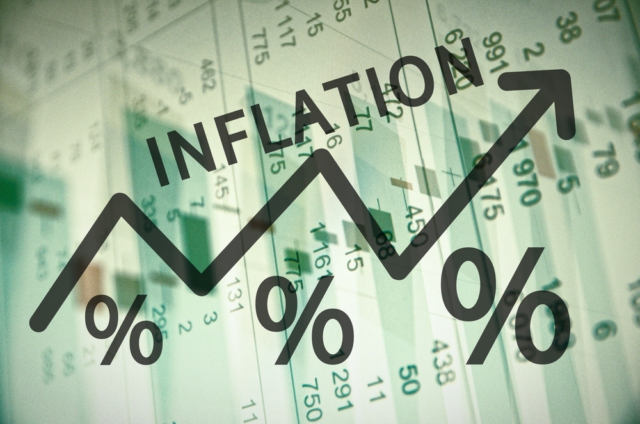
Audio By Carbonatix
Inflation in Ghana, Uganda, and Burundi is expected to accelerate by more than 3 percentage points in 2023 from last year.
This means inflation will stay above 50% this year. Inflation (December 2022) ended the year at 54.1%.
According to the World Bank’s April 2023 Africa Pulse Report, though the rate of inflation is expected to have peaked for most countries in the region, it is not same for Ghana and the two other countries.
It added that average annual inflation forecasts project that about 70% of the countries in the region are expected to have a lower inflation rate in 2023 compared with that in 2022, adding, the median inflation for the group of countries where inflation is expected to have peaked last year drops to 7% in 2023 (from nearly 10% in 2022).
“However, despite the declining inflation rates across many countries in the region, the rates of consumer price growth are still high, above target, and above pre-pandemic levels. In contrast, the rate of inflation in three countries in the region is expected to accelerate by more than 3 percentage points in 2023 from last year, namely, Ghana, Uganda, and Burundi”.
Furthermore, it said cross-country differences in the evolution of external and fiscal balances as well as debt dynamics are also present in countries’ inflation rates.
The country’s inflation rate in 2022 was the highest in Africa.
75% of Sub-Saharan countries registered double digit inflation
“About 75% of the countries in the region registered double-digit year-over-year inflation rates at the end of 2022, with the fastest increases experienced in Zimbabwe, Sudan, Ghana, Rwanda, Sierra Leone, Burundi, Malawi, and Ethiopia”, the World Bank noted.
“Domestic food inflation in Africa has remained sticky in some African countries while it has decelerated in others—although at a much slower pace than the disinflation of food prices in global markets. This might be attributed to currency depreciation—as countries in the region import most of their food staples— as well as high input costs (high oil and natural gas prices affecting transportation and refrigeration, and nitrogenous fertilizers) and extreme weather events (for instance, droughts in the Horn of Africa)”, it pointed out.
The World Bank added that bringing down inflation and anchoring inflation expectations should continue to be a priority for policy makers, to prevent further deterioration of people’s incomes and food security and avert social unrest and conflict
Latest Stories
-
Police nabs 3 drug suspects in Tamale
11 minutes -
The surprising benefits of a glass of orange juice
12 minutes -
31 remanded over invasion of Apamprama Forest Reserve
19 minutes -
One year of President Mahama: Leadership that rebuilt trust – Dr Callistus Mahama writes
36 minutes -
Anthony Joshua’s driver charged over Nigeria crash that killed two
49 minutes -
Joseph Ayinga-Walter: Ode to Melita Happy Kutorkor Antiaye
50 minutes -
Christians usher in 2026 with prayers, declarations and renewed hope
59 minutes -
Ahmed Ibrahim rallies traditional, religious leaders support for peace building
1 hour -
Bus returning from 31st night prayer kills 2, injures dozens at Assin Dansame
1 hour -
Political parties must stay out of local governance – Andrew Bediako
1 hour -
Beyond Witchcraft: Why preparation, not spiritual fear, determines success
1 hour -
Margaret Korme Tetteh
2 hours -
Sammy Gyamfi’s work at Goldbod in few months would take someone five years – Ato Forson
2 hours -
From Accra to Wuzhen: The Ghanaian schoolgirls making their mark in global AI
2 hours -
Ghana must prioritise value addition to sustain IMF gains – Prof Asuming
2 hours

